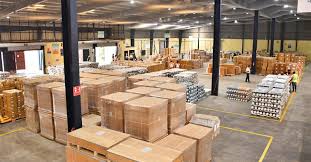Paras Rawal, MD, India Subcontinent, CEVA Logistics, provides insights on how responsive logistics in fashion integrates advanced technology with sustainability. Innovations like AI and eco-friendly practices are transforming operations, enhancing customer satisfaction, and promoting greener supply chains.

Sustainability has become a core focus in logistics, particularly in the fashion industry
Paras Rawal provides insights into the complex logistics challenges in the fast-paced fashion industry, highlighting the need for efficient and reliable supply chains to meet consumer demands and maintain profitability. He emphasises how adopting cutting-edge technologies like real-time tracking, AI, wearables, and blockchain is revolutionising logistics. These innovations are enhancing operational flexibility, resource utilisation, and distribution networks. By integrating these technologies, businesses are setting new standards in logistics, improving collaboration, and boosting customer satisfaction, while also driving sustainability in the sector.
Sustainable practices
Sustainability has become a core focus in logistics, particularly in the fashion industry. Implementing sustainable practices is essential for reducing environmental impact and creating value for all stakeholders. Measures like reducing carbon emissions, exploring alternative energy sources, sustainable sourcing, and using recycled packaging options are becoming standard practices. These initiatives not only help companies meet environmental goals but also appeal to increasingly eco-conscious consumers.
eCommerce demands
The rise of eCommerce has significantly impacted logistics, with consumers demanding faster and more efficient delivery services. This has prompted a shift towards advanced last-mile delivery solutions that prioritise speed and accuracy. By investing in state-of-the-art technologies and systems, companies can enhance their transportation and distribution networks, streamline fulfilment processes, and simultaneously improve their environmental impact and profit margins. This approach aligns with the growing demand for sustainable and efficient logistics solutions.
Reverse logistics
In the fashion industry, returns are particularly high, making reverse logistics a critical component of the supply chain. Sustainable reverse logistics solutions focus on recovering value from returned products through refurbishing, repairing, and preparing items for resale. These processes are especially important for handling high-value and delicate products. Investing in technology-driven training programs for employees ensures that these processes are carried out efficiently and accurately, delivering consistent, high-quality results for consumers.
Stakeholder engagement
Effective communication and strong relationships with stakeholders are fundamental to success in logistics. Regular interactions with clients help address evolving needs, provide profitable solutions, and build trust throughout the supply chain. Emphasising teamwork enhances planning, operational management, and conflict resolution, which are key to maintaining a smooth and efficient logistics operation. Integrating Environmental, Social, and Governance (ESG) principles into corporate strategy drives sustainable growth through innovation, efficiency, and customer satisfaction.
Future outlook
The current business environment is increasingly supportive of innovation, creativity, and sustainability. Governments are streamlining policies to facilitate digital transformation and encourage investment in advanced technologies like AI, IoT, and blockchain. This supportive environment enables companies to push the boundaries of logistics excellence, delivering enhanced value to customers while contributing to a more sustainable future.











